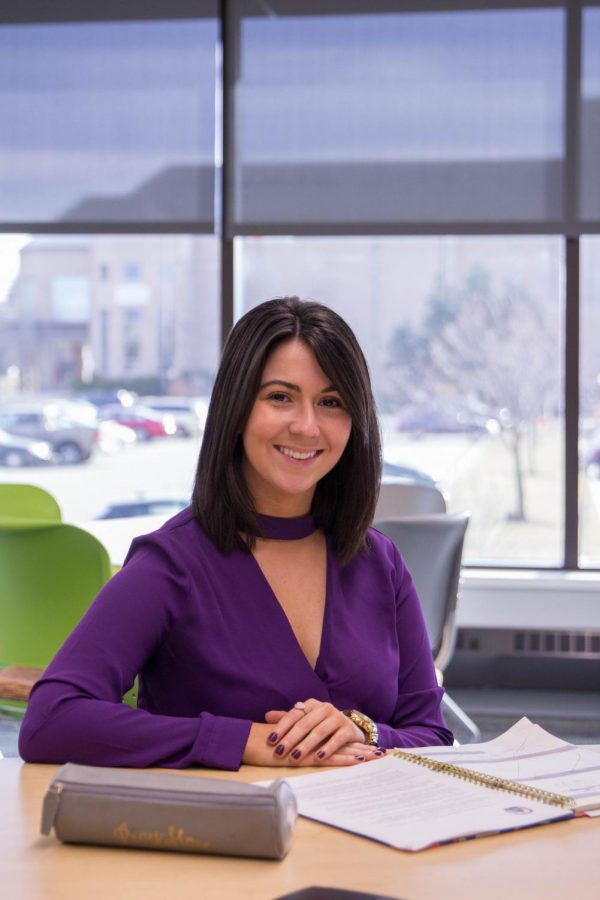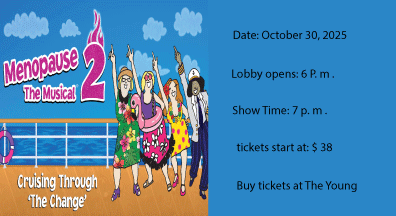Using Her Voice
photo by Kimberly Wethal / Editor-in-Chief
Eleana Maria Alevarez Yepez works hard in Laurentide Hall while she shares stories of her life, and how she has succeeded in becoming the Commencment speaker at the 2017 winter ceremony.
December 7, 2017
School student Eleana Maria Alvarez Yepez was afraid to speak. She was outgoing, but having been uprooted from her native country of Venezuela and moved to the United States by her parents for their safety, she didn’t know English.
“[Venezuela] was just not safe anymore,” Alvarez said. “We really ran away from an unknown dictatorship … I didn’t know English.
“I was very afraid. I’m an outgoing person. I am confident now, it’s been seven years. But back then, I wasn’t really able to be myself,” she said.
Seven years later, a University of Wisconsin-Whitewater senior with an economics major, she’ll be addressing 774 of her peers receiving their bachelor’s, associate, master’s and doctoral degrees at the commencement ceremony at 10 a.m., Dec. 16 in Kachel Gymnasium.
The university will graduate their first class of ten doctoral students Dec. 16. The School of Graduate Studies will give degrees to a total of 78 students, including 68 master’s degrees.
Within the four undergraduate colleges, 681 bachelor’s degrees, and 15 associate degrees from the College of Letters and Sciences will be awarded.
During her undergraduate degree, Alvarez was involved in a number of organizations and work opportunities, including being a tutor, speaking at annual International Dinners and working with the History Department and the University Center Entertainment. She’s traveled to Germany, competed in economics competitions and sold sugar scrub at the weekly Tuesday Whitewater City Market.
When her sister Rebeca found out that she’d been selected for commencement speaker, it was “the best day” of Rebeca’s life.
“Every time since we’ve started college, she’s said she was going to be the speaker,” Rebeca said. “Now that she did it, I have to be speaker for mine.”
Dr. Han Ngo, Alvarez’s adviser in the College of Business and Economics, said it’s important to hear the stories of multicultural and international students.
“You can see the journey and the path that the student overcame [with] their challenges in life,” Ngo said. “Picking courses in English and experiencing new cultures or the community environment depends on where they come from [are sometimes a challenge for international students]. She reaches back and helps the students in the international organization or who ever she knows she’s going to be able to help.”
Around 16 family members are coming to the ceremony to support Alvarez, some of them flying in from Venezuela. They’ll be able to hear her tell her story to a fieldhouse full of her peers.
“I’ll tell my story, who I am, why we came,” Alvarez said. “It’s very unique and something I don’t really share with people, and I’m going to say it that day. It’s my story, and then I’m going to talk about what I feel for Whitewater.”
A new start
The move from Venezuela to Wisconsin in 2010 took only two weeks.
Alvarez’s mother is Venezuelan, but grew up in the United States. She hadn’t planned on returning to the states as early in her life as she did, but conditions in Venezuela were deteriorating so quickly that leaving was the only option.
“She says, ‘I will always tell myself I did the right thing because I saved my family,’” Alvarez said.
Under the rule of former President Hugo Chávez and current president Nicholás Maduro, the country of Venezuela has faced serious government corruption, leading to massive inflation, increases in poverty and a lack of consumer goods. Sanctions placed on the country were renewed by the United States in 2016 for individuals committing egregious human rights abuses and on government officials for corruption.
Alvarez says she made the move very difficult for her parents. After being told to pack four suitcases of belongings, she decidedly only packed a small backpack and a small bag, with the mindset that if she was being uprooted, her parents could repurchase her belongings.
“Why are you taking me somewhere I don’t even know, away from my family and friends?” Alvarez recalls thinking during the time of the move. “Leaving that behind, that was very difficult because everything is very different back home than it is in the U.S.”
She learned to speak English through classes at her high school as a way to fill up her schedule, as she had acquired a substantial amount of the credits she had needed in Venezuela due to starting high school at an earlier age.
The transition to a learning environment that wasn’t taught in a language she was familiar with, in conjunction with culture shock, was challenging.
Often Alvarez was bullied for not knowing how to speak English, but she took the chance to learn it as a second language as an opportunity. She jokes that she learned how to speak English at her Culver’s job, as coworkers were teaching her how to say words related to custard.














Rebeca yepez • Dec 13, 2017 at 12:08 pm
Impressive young lady, I am sure she will have lots of good things to offer to the better our world. Bravo!